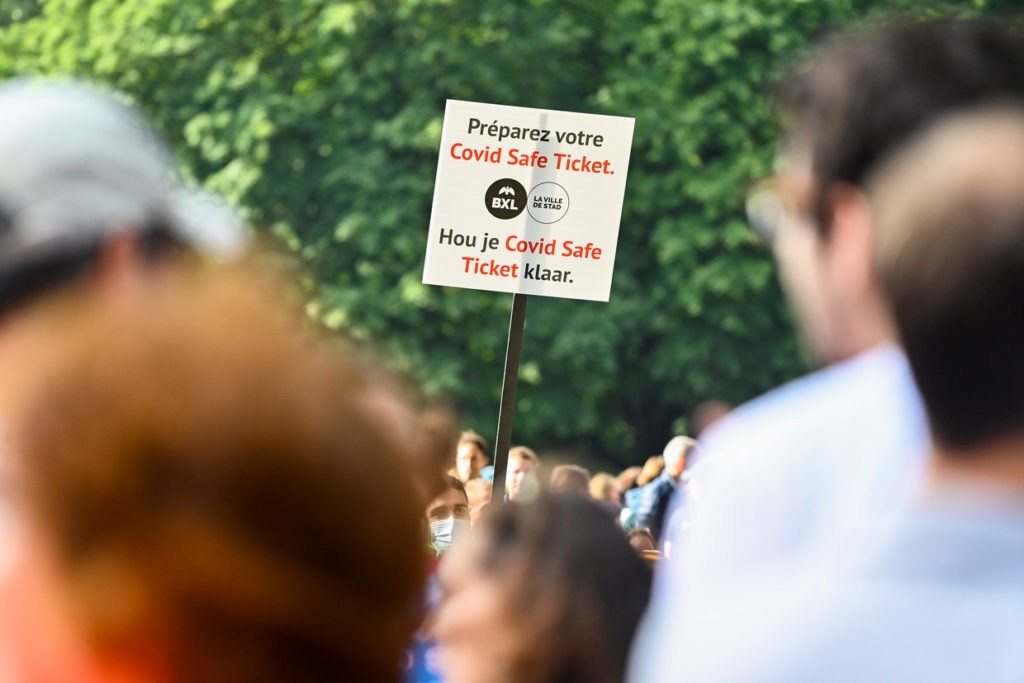A large group of unvaccinated people in Brussels will still not be convinced to receive a vaccine dose even after the expansion of the Covid Safe Ticket (CST), according to Inge Neven, the head of the region's Health Inspectorate.
From 1 October, the use of CST, with which people can prove that they are fully vaccinated, recently tested negative or recovered from an infection in the past six months, will be extended to bars, restaurants and gyms in Brussels, but Neven said this won't have a large impact on the vaccination coverage rate.
"I think there's going to be a group of people who have just been holding out on getting vaccinated for some reason, and I think the implementation of the CST is going to be an important move to convince that group," she told The Brussels Times.
"But I think there is also a large group for which this is not going to change anything, I don't believe many inhabitants of Brussels are going to say 'okay, now we're going to get vaccinated'," Neven added.
She explained that, unlike in France and the Netherlands, where the recent announcement that a ‘Covid pass’ would be introduced in the hospitality sector is thought to be the reason behind increased vaccination rates, following the announcement for Brussels, there was "absolutely no increase in the figures."
Related News
- 'Not clear': Belgium must properly explain Covid Safe Ticket
- Expansion of Covid Safe Ticket 'risks creating societal divide'
- Wallonia expands Covid Safe Ticket from mid-October
Asked whether mandatory vaccination would help increase the vaccination rate, Neven said that this is being discussed by the government, but that it is "not something that you can just implement because legal and ethical considerations are needed for that."
"We now also increasingly hear from people who are really scared of the vaccine," Neven said, adding that imposing such measures to convince people will not work.
Targeted action is the way forward
In Brussels, 54% of the total population has received at least a first dose of the vaccine, down from 80% in Flanders and 69% in Wallonia, according to the latest Sciensano figures.
"The coverage rate is going up every day, I think we shouldn't forget that either. Yes, it is at a slower pace than we would like, but there are around 10,000 people who get vaccinated every week, and that is only possible because of all those local initiatives that we have organised," Neven said.
During the second half of the region's vaccination campaign, the focus has been on bringing vaccination opportunities to the public by stationing vaccination points at pharmacies, markets, large retail shops and social services receptions, among other locations, giving doubters information and responding to their questions.
"It certainly is clear that the vaccination helps, but we have to be able to give the right information to these people because sometimes we hear that even if someone has had the disease or a family member has died because of Covid-19, they still don't think it is necessary for them to get vaccinated," Neven explained.
Neven believes that a combination of measures alongside the expansion of the CST will help improve vaccination coverage. This will mean continuing with and multiplying the more targeted initiatives on a local level while giving people targeted information to address their fears about the vaccine.
"It is quite a challenge and the Federal Government also knows it is not an easy task. It takes a lot of time and a lot of energy to continue to reach everyone, but we have to keep working to reach our goal," Neven concluded.

